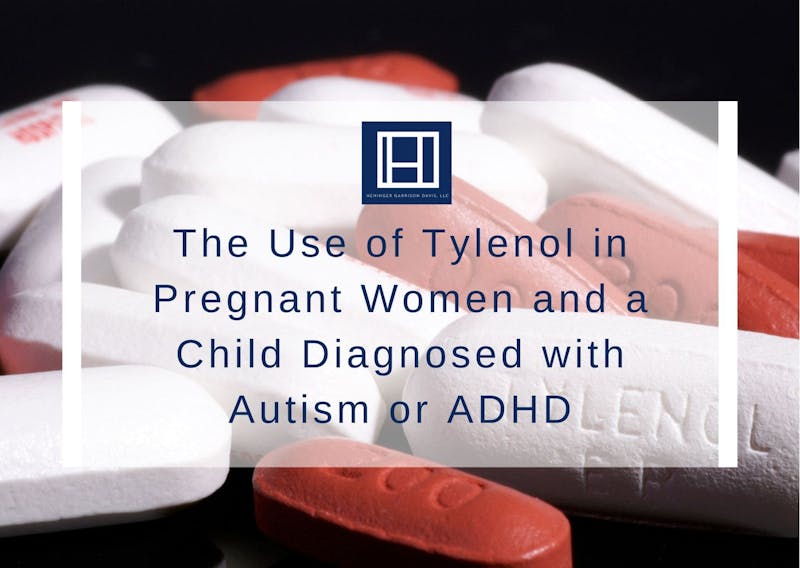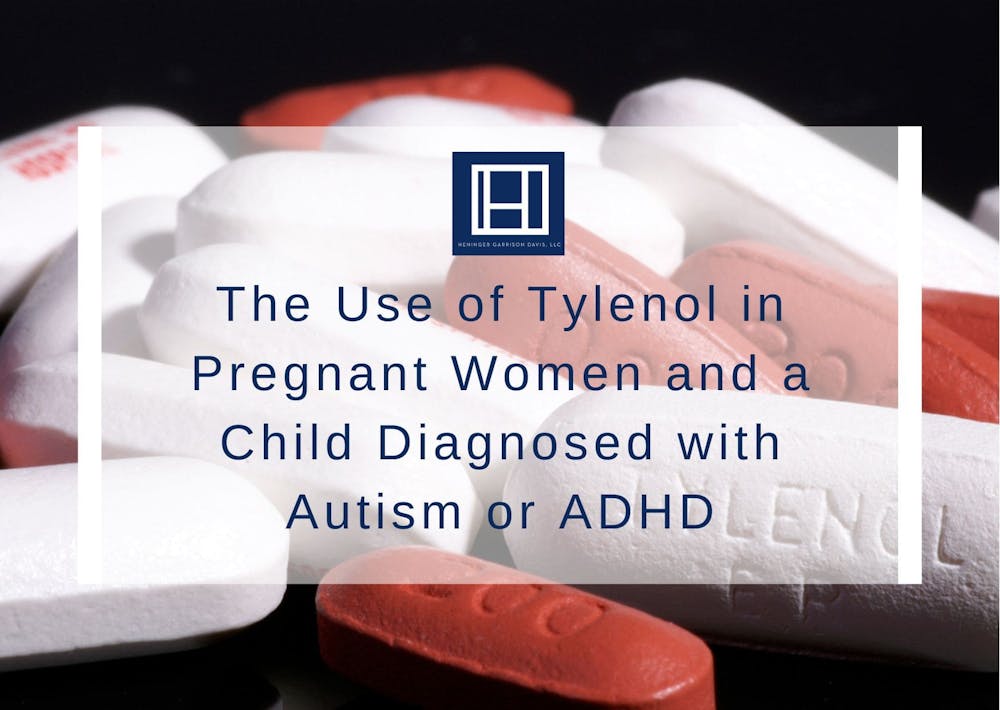

Tylenol (acetaminophen) is one of the most widely used painkillers. Until recently, many pregnant women would take Tylenol to treat headaches, muscle soreness, and other common issues. However, recent scientific research has alleged that prolonged use of acetaminophen during pregnancy, especially during the second and third trimesters, may lead to higher rates of children being diagnosed with ADHD, autism, and other developmental disorders.
Evidence Linking Taking Tylenol During Pregnancy to Autism
In the last few years, a growing body of scientific research has identified a potential link between the use of acetaminophen during pregnancy and attention deficit disorder (ADD), ADHD, autism, and other neurodevelopmental conditions. Medical experts joined in issuing a Consensus Statement in the Nature Reviews Endocrinology medical journal article. They warned that the use of acetaminophen during pregnancy that may be harmful to the fetus’ development and could lead to higher rates of ADD and autism diagnoses. The article provides leading epidemiological research studies showing the connection between prenatal acetaminophen exposure and higher ADD and autism rates.
Schedule a Free Legal Consultation Contact Us
The Hopkins Cord Blood Study
A team from Johns Hopkins published an NIH-funded study in 2019 that found that prenatal exposure to acetaminophen in the womb can increase a child’s risk for ADD or autism. The study looked at umbilical cord blood samples from 996 births. Babies with the highest levels of acetaminophen in the cord blood were three times more likely to be diagnosed with autism than those with lower acetaminophen levels in their cord blood.
The JAMA Psychiatry Study
One of the most prominent studies published in the journal JAMA Psychiatry (the “JAMA Study”) reported that “biomarkers of fetal exposure to acetaminophen were associated with significantly increased risk of childhood [autism] in a dose-response fashion.” Further, the study reported that the association between exposure to acetaminophen in utero was consistent across multiple subgroups. Regardless of medical history, age, or race, the study reports that acetaminophen use during pregnancy is linked to ADD and autism rates.
My Child Has Been Diagnosed With Autism: Do I Have a Claim?
The emerging research connecting exposure to Tylenol in utero and ADD and autism has prompted multiple lawsuits against drug makers and retailers. In these lawsuits, plaintiffs allege that generic acetaminophen and Tylenol products caused children to develop autism. They also claim that the drug manufacturers negligently failed to warn mothers about the risk of using Tylenol while pregnant.
If your child has been diagnosed with autism, ADD, and ADHD and you used Tylenol products, whether on-brand or off-brand, you may be wondering whether you have a potential claim for compensation. Treating autism and ADHD can be extremely expensive, and recovering compensation could help ensure your child receives all the medical treatment and therapy they need.
You may have a valid claim for compensation, but it will depend on the facts of your unique case. Even if you can prove the connection between acetaminophen and an Autism diagnosis, that does not prove that Tylenol caused your child’s autism. Instead, you will need to prove that you used enough Tylenol during your pregnancy to increase your child’s likelihood of being diagnosed with ADD, ADHD, or autism. The best thing you can do is discuss your case with an attorney who can help you understand whether or not you have a valid claim for compensation.
Discuss Your Case with a Skilled Personal Injury Attorney
If your child has been diagnosed with ADD, autism, or another developmental disability, and you used Tylenol when pregnant, you may have a valid claim for compensation. As a plaintiff in a personal injury lawsuit, you only have a limited time to pursue a claim. The sooner you reach out to an attorney, the better. Contact the skilled Alabama personal injury attorneys at Heninger Garrison Davis today to schedule a free case evaluation.

